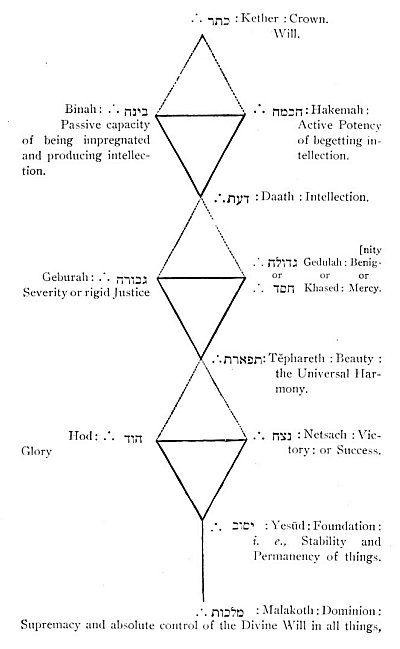No, no! God is not thus amused with and prodigal of human suffering. The world is neither a Here without a Hereafter, a body without a soul, a chaos with no God; nor a body blasted by a soul, a Here with a worse Hereafter, a world with a God that hates more than half the creatures He has made. There is no Savage, Revengeful, and Evil God: but there is an Infinite God, seen everywhere as Perfect Cause, everywhere as Perfect Providence, transcending all, yet in-dwelling everywhere, with perfect power, wisdom, justice, holiness, and love, providing for the future welfare of each and all, foreseeing and forecaring for every bubble that breaks on the great stream of human life and human history.
The end of man and the object of existence in this world, being not only happiness, but happiness in virtue and through virtue, virtue in this world is the condition of happiness in another life, and the condition of virtue in this world is suffering, more or less frequent, briefer or longer continued, more or less intense. Take away suffering, and there is no longer any resignation or humanity, no more self-sacrifice, no more devotedness, no more heroic virtues, no more sublime morality. We are subjected to suffering, both because we are sensible, and because we ought to be virtuous. If there were no physical evil, there would be no possible virtue, and the world would be badly adapted to the destiny of man.
p. 717
[paragraph continues] The apparent disorders of the physical world, and the evils that result from them, are not disorders and evils that occur despite the power and goodness of God. God not only allows, but wills them. It is His will that there shall be in the physical world causes enough of pain for man, to afford him occasions for resignation and courage.
Whatever is favorable to virtue, whatever gives the moral liberty more energy, whatever can serve the greater moral development of the human race, is good. Suffering is not the worst condition of man on earth. The worst condition is the moral brutalization which the absence of physical evil would engender.
External or internal physical evil connects itself with the object of existence, which is to accomplish the moral law here below, whatever the consequences, with the firm hope that virtue unfortunate will not fail to be rewarded in another life. The moral law has its sanction and its reason in itself. It owes nothing to that law of merit and demerit that accompanies it, but is not its basis. But, though the principle of merit and demerit ought not to be the determining principle of virtuous action, it powerfully concurs with the moral law, because it offers virtue a legitimate ground of consolation and hope.
Morality is the recognition of duty, as duty, and its accomplishment, whatever the consequences.
Religion is the recognition of duty in its necessary harmony with goodness; a harmony that must have its realization in another life, through the justice and omnipotence of God.
Religion is as true as morality; for once morality is admitted, its consequences must be admitted.
The whole moral existence is included in these two words, harmonious with each other: DUTY and HOPE.
Masonry teaches that God is infinitely good. What motive, what reason, and, morally speaking, what possibility can there be to Infinite Power and Infinite Wisdom, to be anything but good? Our very sorrows, proclaiming the loss of objects inexpressibly dear to us, demonstrate His Goodness. The Being that made us intelligent cannot Himself be without intelligence; and He Who has made us so to love and to sorrow for what we love, must number love for the creatures He has made, among His infinite attributes. Amid all our sorrows, we take refuge in the assurance that He loves us; that He does not capriciously, or through indifference,
p. 718
and still less in mere anger, grieve and afflict us; that He chastens us, in order that by His chastisements, which are by His universal law only the consequences of our acts, we may be profited; and that He could not show so much love for His creatures, by leaving them unchastened, untried, undisciplined. We have faith in the Infinite; faith in God’s Infinite Love; and it is that faith that must save us.

Moe is the founder of GnosticWarrior.com. He is a father, husband, author, martial arts black belt, and an expert in Gnosticism, the occult, and esotericism.






